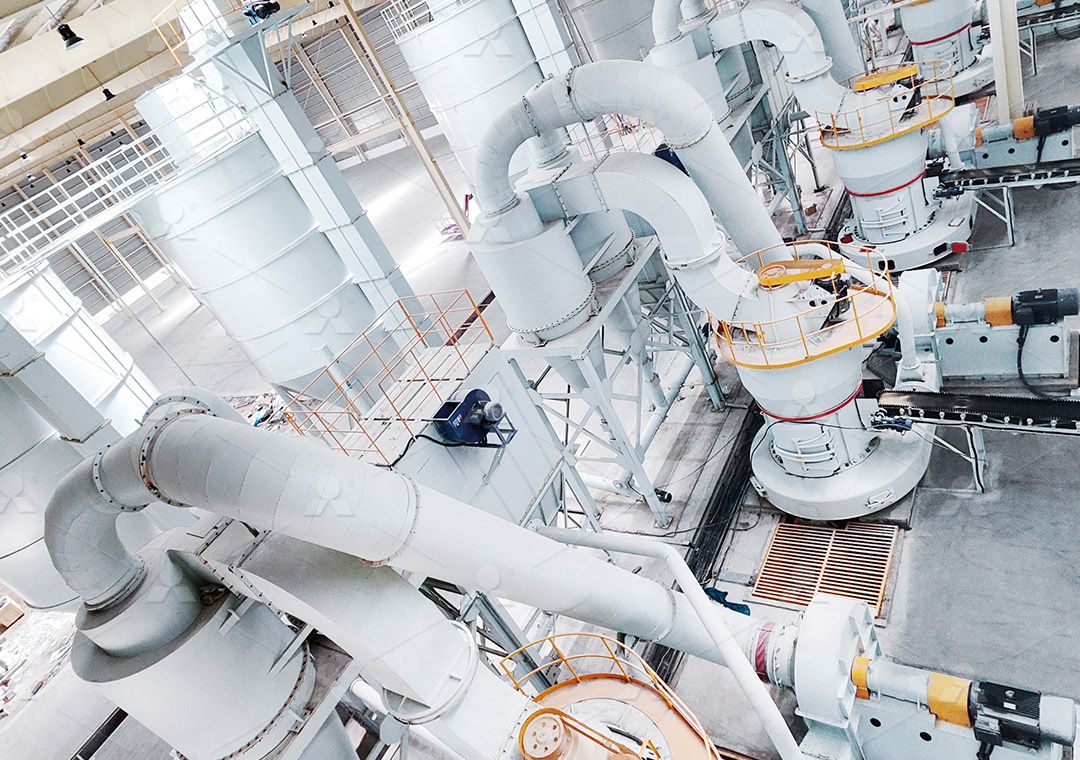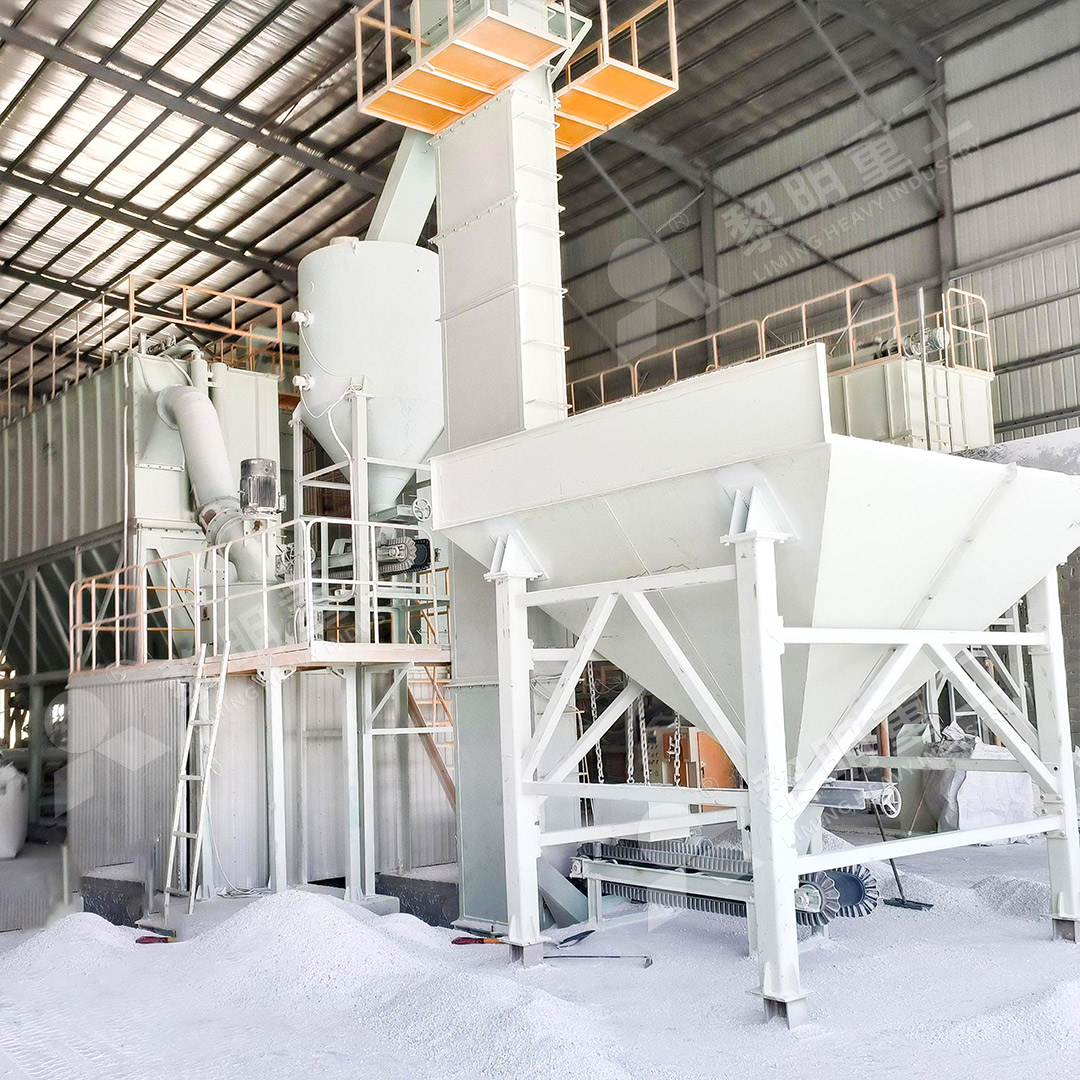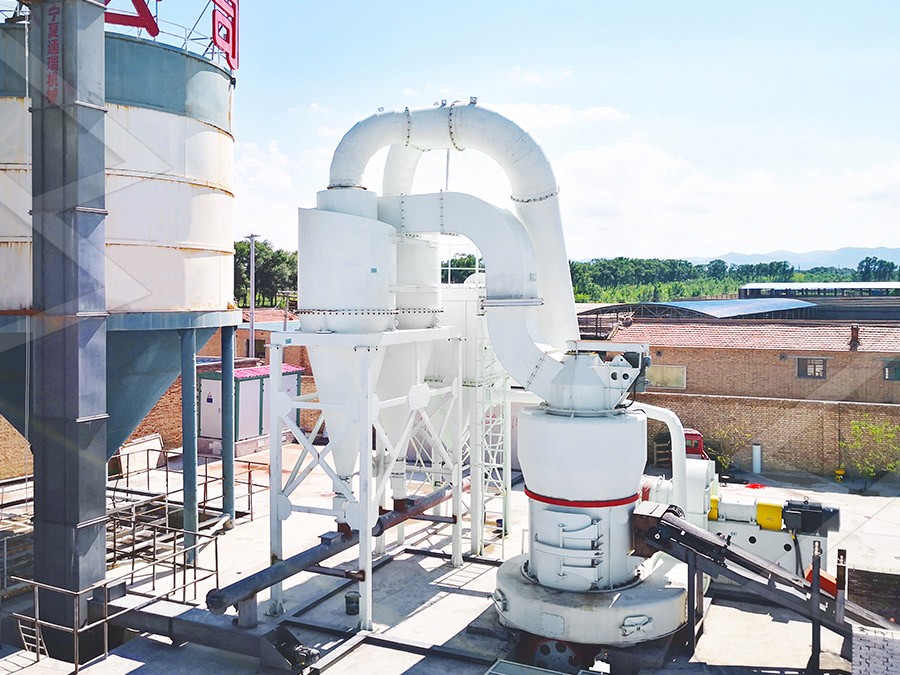Raymond Mill for 325 Mesh Powder Production in Shijiazhuang
We provide a wide range of mills — including Raymond mill, trapezoidal mill, vertical mill, ultrafine mill, and ball mill, obtained ISO9001 international quality certification, EU CE certification, and Customs Union CU-TR certification. Suitable for processing minerals such as limestone, phosphate, quicklime, kaolin, talc, barite, bentonite, calcium carbonate, dolomite, coal, gypsum, clay, carbon black, slag, cement raw materials, cement clinker, and more.
The discharge range of these mills can be adjusted to meet specific processing needs, typically from 80-400 mesh, 600-3250 mesh, and can achieve the finest particle size of up to 6000 mesh(D50).
If you are looking for a reliable grinding solution to turn stone or minerals into fine powder, please feel free to contact our online customer service.
Raymond Mill for 325 Mesh Powder Production in Shijiazhuang
In the bustling industrial landscape of Shijiazhuang, where precision manufacturing meets demanding production schedules, the quest for reliable fine powder processing equipment remains constant. For operations requiring consistent 325 mesh powder production, the traditional Raymond Mill has long been a trusted workhorse in numerous local plants.
The specific requirements for 325 mesh powder—approximately 44 microns—demand equipment capable of precise particle size control while maintaining operational efficiency. Traditional Raymond Mill systems have served this purpose adequately, but technological advancements have introduced more sophisticated solutions that deliver superior performance for today’s demanding applications.

When evaluating grinding solutions for 325 mesh production, several factors come into play: energy consumption per ton, maintenance requirements, particle size distribution consistency, and environmental compliance. The traditional Raymond Mill design, while proven, faces challenges in these areas compared to newer technologies.
Advanced Solutions for Modern Production Needs
For operations seeking to upgrade their 325 mesh powder production capabilities, we particularly recommend considering our MW Ultrafine Grinding Mill. This advanced system represents a significant evolution beyond traditional Raymond Mill technology, specifically engineered for operations requiring precise control in the 325-2500 mesh range.
The MW Ultrafine Grinding Mill incorporates German cage-type powder selector technology, ensuring exceptional precision in particle separation. With adjustable fineness between 325-2500 meshes and the capability to achieve d97≤5μm in a single pass, this equipment delivers consistent quality that exceeds traditional Raymond Mill performance. The absence of rolling bearings and screws in the grinding chamber eliminates common failure points, significantly reducing maintenance concerns that often plague older Raymond Mill installations.

Another compelling option for Shijiazhuang operations is the LUM Ultrafine Vertical Grinding Mill, which integrates the latest Taiwanese grinding roller technology with German powder separating innovations. This system offers particular advantages for operations processing materials like limestone, calcite, and dolomite to 325 mesh specifications.
Operational Advantages for Shijiazhuang Facilities
The environmental considerations for Shijiazhuang-based operations cannot be overstated. Both the MW and LUM systems feature integrated pulse dust collectors and noise reduction technologies that ensure compliance with increasingly stringent environmental regulations. The fully sealed systems operate under negative pressure, eliminating dust pollution—a critical consideration for urban manufacturing facilities.
From an economic perspective, the energy efficiency of these advanced systems provides substantial operational savings. The MW Ultrafine Grinding Mill demonstrates 40% higher production capacity compared to jet grinding mills with the same fineness and power specifications, while consuming only 30% of the energy of comparable jet grinding systems.

For existing Raymond Mill operations considering upgrades, the transition to these advanced systems can be justified through multiple metrics: reduced energy consumption, lower maintenance costs, improved product quality consistency, and enhanced environmental compliance. The digital processing and numerical control manufacturing of these systems ensure precision that translates to reliable long-term performance.
Frequently Asked Questions
What makes the MW Ultrafine Grinding Mill superior to traditional Raymond Mills for 325 mesh production?
The MW Mill incorporates advanced German separation technology, achieves higher yields with 30-50% lower energy consumption, features no rolling bearings in the grinding chamber to eliminate common failure points, and provides more precise particle size control.
Can these systems handle the specific materials commonly processed in Shijiazhuang?
Yes, both the MW and LUM mills are engineered for materials including limestone, calcite, dolomite, gypsum, barite, and marble—all commonly processed in the Shijiazhuang region.
What about maintenance and spare parts availability?
We maintain comprehensive spare parts inventories and provide technical support to ensure worry-free operation. The design of these mills specifically reduces maintenance requirements compared to traditional Raymond Mills.
How do the environmental features benefit operations in regulated areas?
The integrated pulse dust collectors and noise reduction technologies ensure compliance with environmental standards, operating with no dust pollution and minimal noise impact—critical for urban manufacturing locations.
